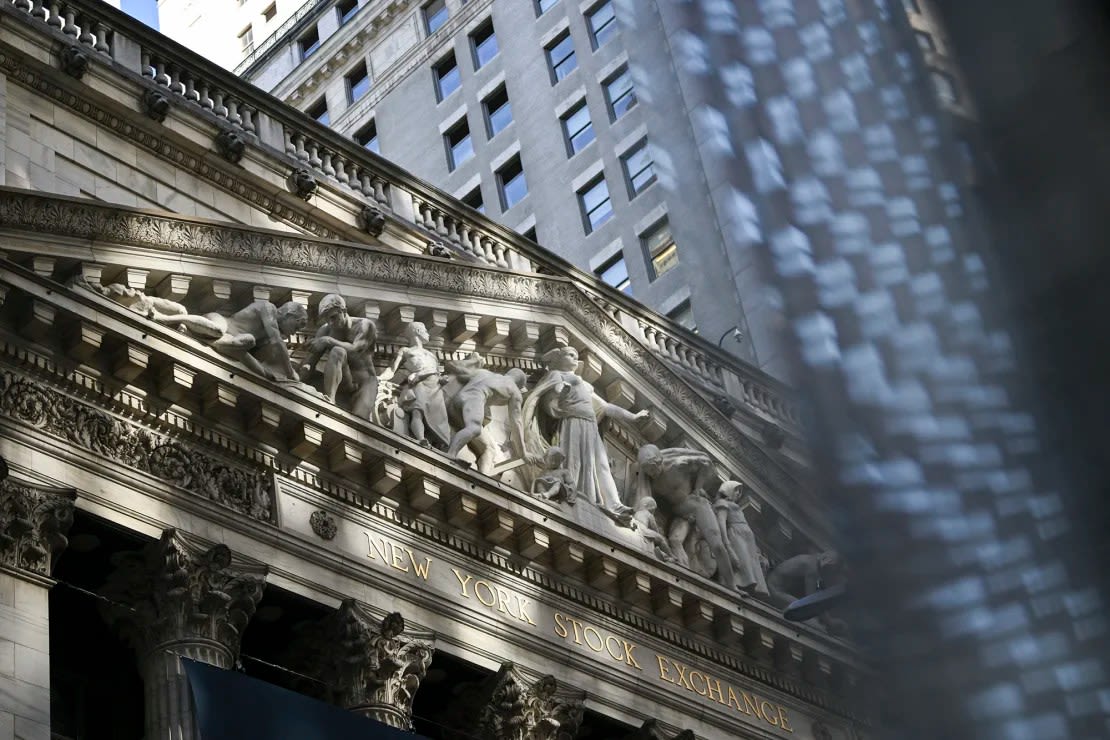() – President-elect Donald Trump’s selection of Treasury secretary contrasts with some of the most controversial and questionable proposals he has announced so far. Scott Bessent won’t scare Wall Streetthe sector you will supervise.
The position of Treasury Secretary is a serious position for a serious person, capable of meeting immediate deadlines and managing the pressures affecting financial markets around the world. In many respects, the Secretary of the Treasury is the chief strategist of the economy.
A radical pick could have rattled investors and added risk to Trump’s already complex economic agenda.
Wall Street was unfazed by the selection. Some applauded her.
“Scott Bessent was considered by many observers to be one of the most respected and competent contenders,” said Judge Glock, a senior fellow at the Manhattan Institute. “He maintained his ties to traditional business and financial groups, as well as Trump loyalists.”
In other words, Trump didn’t pick Wall Street’s Matt Gaetz or Robert F. Kennedy Jr. to run the Treasury.
That doesn’t mean Bessent will oppose Trump’s policies, including higher and widespread tariffsthe large scale tax cuts or the mass deportation of people without legal immigration status. Bessent is a relatively recent convert to the MAGA movement who founded the hedge fund Key Square and previously worked as chief investment officer at Soros Fund Management. Last week he wrote a opinion article on Fox News in support of Trump’s policies.
Tariffs, taxes, interests… What will be the economic policy that Donald Trump could adopt in his new government?
But Glock said Bessent would serve as a steady hand to guide the economy.
“On the issue that most divides Trump and traditional business leaders – tariffs – Bessent focused on the value of tariffs as a tool to encourage better deals with trading partners, which has a long bipartisan history,” Glock said. .
One of the jobs of the Treasury secretary is to help maintain calm and confidence on Wall Street during times of economic or market turmoil. In other words: prevent a pothole from turning into panic. That’s why Bessent had been widely considered the favorite for the job before he was finally selected.
Some quarters of Trump’s circle, including Elon Musk, were publicly advocating for a change agent in office, specifically Cantor Fitzgerald CEO Howard Lutnick, who Musk said will “actually implement change,” unlike Bessent, who would be “more of the same.” Ultimately, Lutnick was selected as Secretary of Commerce, an important but ultimately less crucial position for making decisive market decisions.
A firm demeanor, a key trait of a successful Treasury secretary, likely served as a factor in Trump’s ultimate selection to go with Bessent.
“I don’t think there is a significant difference in the outcomes of tariff policy between Bessent or Lutnick,” said Isaac Boltansky, director of policy research at BTIG. “But there are differences in temperament and experience that will matter when the next Treasury secretary communicates with the public, lawmakers and foreign officials.”
Electing Bessent shows that there are still some limits around Trump, especially when it comes to Wall Street and the management of the country’s money.
“Scott understands markets, economics, people and geopolitics better than anyone I’ve ever interacted with,” Kyle Bass, a billionaire hedge fund investor at Hayman Capital Management, said in a post by last week.
During his first term, Trump became obsessed with market movementsconsidering the Dow Jones Industrial Average as a real-time barometer of its success. Trump regularly tweeted even the most mundane market milestones, sharply departing from the lackadaisical approach his predecessors took to the issue.
So Bessent will have to try to enact policies that serve the president-elect’s agenda while keeping the market buoyant.
That may not be easy: During Trump’s first-term trade war with China, markets fell on multiple occasions, at least in part, due to fears about Trump’s trade policy.
For example, in December 2018 the markets shook due to fears about the trade war between the United States and China. That turbulence left Trump hungry for a deal with Chinese President Xi Jinping during a high-stakes meeting in Argentina, sources told at the time. When markets failed to recover, Trump expressed anxiety about plunging stocks and even worried that the losses could hurt him politically.
It’s easy to imagine a similar story in 2025, as Trump has vowed to impose 60% tariffs on China, one of the U.S.’s largest trading partners and a source of supplies and parts for American companies.

Economists have warned that Trump’s tariffs on China and proposals for widespread 10% to 20% tariffs on all U.S. imports will be inflationary.
A similar story could play out if investors and CEOs began to balk at Trump’s plans to deport millions of undocumented workers, a move that also could raise inflation.
Investors could also react very negatively if Trump made a move to oust Federal Reserve Chairman Jerome Powell, with whom Trump has had a complicated and at times contentious relationship. The Treasury Secretary works closely with both the central bank and the White House.















Add Comment